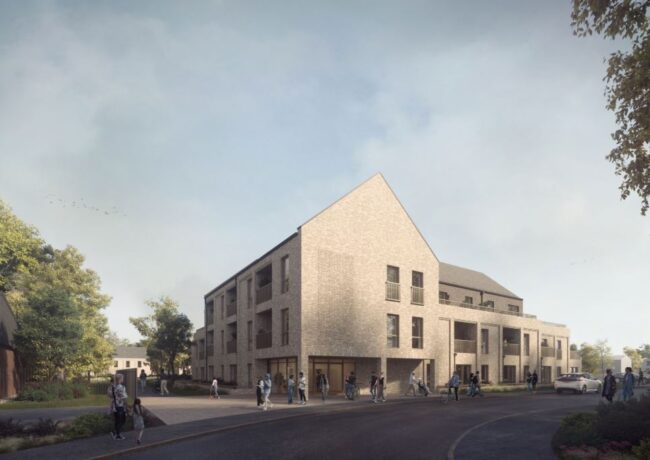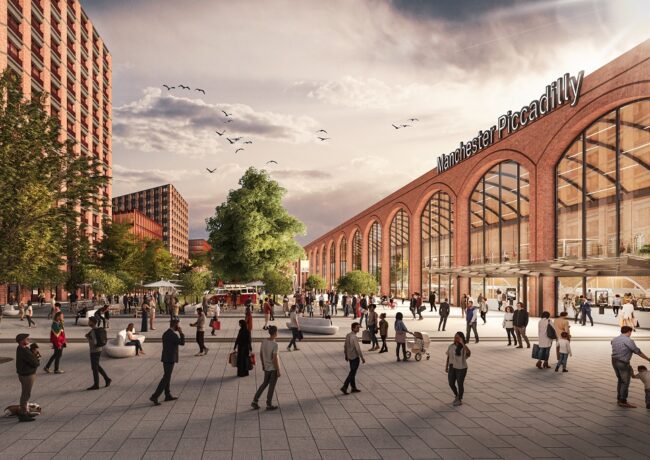NW 2013: Tale of two towns
 The changing face of the high street has meant that many town centres are in need of heavy regeneration to make them fit for purpose. While online shopping has steadily chipped away at footfall for the last ten years, consumers now have so much choice around how and where they purchase goods that it is very difficult for traditional retailers to compete in an economic climate where price is often the deciding factor. This has severely impacted high streets as some stores have been forced to close their doors.
The changing face of the high street has meant that many town centres are in need of heavy regeneration to make them fit for purpose. While online shopping has steadily chipped away at footfall for the last ten years, consumers now have so much choice around how and where they purchase goods that it is very difficult for traditional retailers to compete in an economic climate where price is often the deciding factor. This has severely impacted high streets as some stores have been forced to close their doors.
The role of the store has changed, and will continue evolve. Consumers expect retail staff to be more knowledgeable about the products they are selling and to offer guidance and advice on how to choose the best product or how to get the most out of the one they pick.
The Apple Store is a great example of this. While it may not sell a product to every person that enters the store, it is much more than just a point of purchase. People can interact with goods before they buy them and the staff are extremely knowledgeable about the products on display, some of them earning the title 'Genius.' There's no till point, rather staff bring the gadget to complete the purchase to the customer. While it may be difficult to replicate this experience in a greetings card or home gifts shop, retailers need to focus on the customer experience – not just the products they are selling – to foster brand loyalty and ensure purchases. It's all about overall positive experience and we can expect to see more of this filtering through high streets in 2013 and beyond.
Many councils have recognised that the traditional shopping and food offering of high streets is no longer appropriate to today's needs and a number of local authorities in the North West have committed to exciting transformation projects with private sector partners under new town centre strategies that we will see coming to life in 2013.
A great example of this is Oldham town centre, where plans to regenerate a large part of the town have recently been unveiled. Oldham has suffered through the recession and has been blighted by the demise of large retailers such as Woolworths, Littlewoods and TJ Hughes. With other household names pulling out of the town, few restaurants and a lack of well-established bars and clubs, the local economy has bombed as visitor numbers have plummeted.
Despite having much to overcome, Oldham Council has recognised the need for change and has sought strategic private sector partners to breath new life into the town. The arrival of the Metrolink has been a catalyst for redevelopment and future plans have a total investment value of £63m. Along with the creation of a cinema in the old town hall building, a much stronger food and drink offering will be provided, capturing spend from residents that often travel to nearby Rochdale or Ashton-Under-Lyne.
The council has also planned a brand-new leisure and hospitality training centre for the town. Looking to develop publically owned land and properties, the Hotel Future project will create a 120-bedroom luxury hotel with a health club, spa and destination restaurant with a private sector partner.
Further examples of such regeneration emerging can be seen in places like Stockport, where the Bridgefield site has recently achieved planning permission for a mixed-use leisure and retail development. The planned combination of quality eateries with a cinema and stores will provide a modern, attractive proposition to both existing visitors and local residents including those who, at the moment, choose to go elsewhere.
- Graham Stock, partner, Drivers Jonas Deloitte





More independent shops are required, not just the same chain bookies, pound shops, bland chain restaurants.
By OTP
“Build it and they will come?”. I hope so!
By Kevin Costner
these are fine words which should be fully supported but there has not been any real innvoation. is a new cinema and restaurants reinventing the high street?
By turner
I have to agree the UK has too many chain stores. As well as that if you are a retailer, you no longer need 500 plus stores to reach nationwide audience for certain markets like clothing, add in cost of parking, high business rates which can be more than the cost of a lease, silly lease prices with upward only rent reviews and leases that go on for 15 years no wonder independents are struggling. Deal, Kent is a wonderful town. I always bemoaned the fact that there are few chains here, despite the recession and despite some chains like M and S and Sainsbury’s Deal still retains a Greengrocer, Bakery, Butcher’s, Haberdashery, how many towns of 30,000 can say that in these times. There is a vacancy rate of 10 per cent though in the main high street. Why thanks to the closure of chains? Retail needs to go back to basics to survive. Individual independent retailing is the way forward, offering personal service and what people want not the same thing sold in 300 plus other stores.
By Gabby C